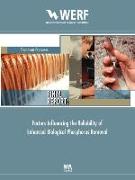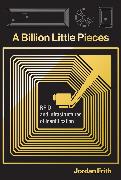Factors Influencing the Reliability of Enhanced Biological Phosphorus Removal
BücherAngebote / Angebote:
Enhanced biological phosphorus removal (EBPR) has been used for decades to remove phosphorus from municipal wastewater because it allows facilities to meet water quality goals while minimizing chemical consumption and sludge production. However, there is still substantial variability in both the practices applied to achieve EBPR and the level of soluble phosphorus removal achieved. The objective of this research project was to develop information that can be used to help municipal wastewater treatment plants more efficiently and cost effectively remove phosphorus through EBPR processes. This project included detailed analysis of routine water quality and operating data, field testing observations, and special studies conducted over the course of the project to evaluate the variability of EBPR, factors influencing EBPR performance, and the relationship between EBPR and the presence of glycogen accumulating organisms (GAOs). The study showed that EBPR is capable of achieving very low effluent phosphate concentrations. When operating well, it is possible to achieve soluble phosphate concentrations under 0.1 mg/L. However, many facilities struggle to routinely achieve soluble phosphate concentrations under 1.0 mg/L. For this reason, most facilities experience significant variability in EBPR performance, requiring augmentation of EBPR through the use of substrate addition or polishing with iron- or aluminum-containing chemicals.
Folgt in ca. 15 Arbeitstagen




